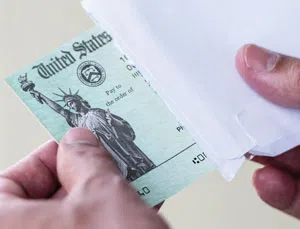How to finance the sale of your contracting business.
Seldom does a week pass by when I am not asked about the current buying activity for contracting businesses. This is flattering, as it suggests I have information and I do. Private equity buyers are very interested in our businesses and they’re paying impressive prices. That’s great news to some, but not all.
The facts are these private equity buyers play with big dollars and they are not interested in rolling their sleeves up fixing your small to mid-sized HVACR business.
Today’s buying activity is focused on businesses producing $10 million and above in annual revenue, operate in a market that can support significant growth and come equipped with a management team that can be heavily relied upon post acquisition.
Many times, that management team includes the owner and most private equity deals are structured such that the seller keeps a portion of the business (skin left in the game). Chances are you are not a candidate for a private equity buyer if:
- Your annual revenues are less than $10M.
- You operate in a mid to small market.
- You do not have a management team in place below the owner.
- As the owner you are planning an immediate exit.
Your Options
If you’re not a private equity candidate, and there are thousands, don’t panic, there is a solution. The solution might be staring you in the face, literally.
For many businesses, the answer to a successful exit strategy will be selling to an employee. That employee may or may not be related to you (son, daughter, niece or nephew) and for the sake of this article, I will simply use the term “employee.”
An employee is the right choice for so many business owners. Who better than an employee that knows your business, knows the strengths and weaknesses and will be prepared to step up and pay fair market value for it?
Selling to a competitor makes logical sense and so many business owners place such reliance on an exit strategy focused around the big competitor in town.
Of course, a competitor wants your customers, but that’s where the logic gets flawed. Customers are all a competitor wants and very little to no value will be placed on your office equipment, computers, telephone system and inventory of small tools.
He does not want your old trucks and chances are you are feeding your employees into the lion’s den.
Finally, any intangible value associated to your name is negligible to your competitor; it is unlikely that he will adopt it. So why are so many business owners shocked when their competitor rightly offers a purchase price radically less than what is expected?
Selling to an Employee
With the understanding that a private equity buyer is not likely to knock on your door and your competitor will gladly take your business for little, selling to an employee starts to make more sense. But is there a catch? Yes, the chances are your employee does not have enough money to buy your business.
Thankfully there is a solution. The solution is borrowing the money, the buyer that is, from a bank that uses the Small Business Administration’s (SBA) guaranteed loan program.
The buyer is not actually borrowing from the government, but from a bank that participates in the SBA lending program, where the SBA essentially guarantees (insures) a percentage of the loan, enabling banks to lend to small businesses based upon cash flow and not collaterized assets.
When selling your business, the buyer will secure a loan from a bank (SBA lender). Because that loan is insured through the SBA the bank making the loan has to follow certain guidelines.
These guidelines are fairly flexible in enabling your general manager with very little savings to secure the funds to pay you off at close.
Without the SBA program, it’s unlikely any of this is possible because your bank down on the corner most likely will not get comfortable with the lack of tangible assets they can use as collateral and cashflow lending scares them to death.
Historically there has been one option and that option was in the form of the dreaded seller’s note which turns the seller into a bank.
As the seller carrying a seller note, you are only kind of selling the business and if the buyer stumbles and falls, your days of mid-morning tee-off times may be put on hold until the situation is rectified. Say good-bye to retirement.
Securing SBA Loan
An SBA loan enables the seller to be liquid on the day of close without recourse. This certainly is attractive when dealing with an unrelated employee and it serves many valuable lessons to junior on banking relations, something that undoubtedly may come in handy later as the business grows.
Does the buyer have to be an employee to qualify for an SBA loan? Absolutely not. This lending program may work regardless of whether or not the buyer works for you.
Lenders will scrutinize the borrower’s business experience prior to agreeing on a loan if that buyer does not have contracting experience.
So how much money does my employee have to put up? No bank, not even the SBA will lend 100 percent. An SBA lender can lend as much as 90 percent of the total purchase price to the buyer.
That means if the business was to be sold for $1M, the buyer is expected to pony up $100,000 and the bank lends $900,000.
Great, but not everyone has $100,000, are there other solutions? Yes. The seller can take as much as 5 percent in a seller note offsetting the 10 percent minimum.
In this same example, the buyer puts in $50,000, the bank $900,000 and the seller holds a note for $50,000. The one caveat in this example is the seller’s note does not pay until the bank loan is satisfied.
Are there any other methods that can be used to eliminate the need for buyer cash at close? Yes.
Assume the buyer and seller plan this sale. If the buyer owns 10 percent of the business for at least two years, the SBA lender can potentially loan up to 100 percent of the purchase for the remaining 90 percent of the business as long as the business has at least 10 percent equity on its balance sheet.
This approach has significant benefits which include:
- Locks the employee in with the pride of ownership.
- Provides a good faith measure to the employee in regard to the plan.
- Enables the employee to purchase a portion of the business at a possible discount. This discount is beneficial especially if the employee feels he is contributing to increasing the value of the business and is concerned that he will ultimately pay a premium for the business.
Do Homework on Lenders
By now you might be thinking, “great, but isn’t it a long process to secure an SBA loan?” The reality is, it can be.
There were over 73,000 SBA loans in the United States and over 1,900 banks that made an SBA loan in 2017. What this means is that many conventional banks make one or two SBA loans a year.
This lack of expertise creates added steps and a longer approval process as these lenders must approve the loan in-house and then send the loan to the SBA for the SBA’s actual approval, which is very time consuming.
A seasoned SBA lender can approve SBA loans in-house and is not required to send the loans for the SBA’s approval.
This is no different than if your HVACR business performed one change-out a year, chances are you would not be as efficient at the process.
Luckily there are banks like Live Oak Bank out of Wilmington, N.C. In SBA’s Fiscal Year 2018, Live Oak Bank loaned the highest dollar amount of any other SBA lender.
To be efficient at lending, Live Oak selects industries to key in on. This focus enables Live Oak to become experts which results in significant efficiencies.
Recently, Live Oak has selected service contractors as a key industry. Brandon Bolen, who heads up the Service Contracting Group, has been involved in multiple positions at Live Oak Bank working with customers at different points of the lending process.
“An SBA loan is a valuable option for employees of a service contracting business to have when they are seeking to buyout the existing ownership,” Bolen says. “It’s a great fit not just for internal succession plans, but also for mergers & acquisitions by existing contracting businesses, and the purchase, construction or renovation of business real estate to facilitate the growth of a service contractor’s headquarters or satellite location.
“Live Oak Bank is excited to work with service contractors who are looking to grow their business, as well as enable owners who have spent years building their business, the opportunity to sell outright to a qualified employee or buyer.”
Planning
Planning to sell to an employee remains to be critical. This is not something that happens over-night and a little planning along the way will pay huge dividends. With the understanding that with SBA lenders such as Live Oak willing to loan to buyers, what should a contractor do today who is planning to sell to an employee?
The following are the steps that should be taken.
- Identify the employee who is likely to be interested in purchasing your business.
- Communicate with the qualified employee regarding your intentions.
- Invest in a base-line valuation now. This will enable you to firm up timing.
- Consider selling small portions of the business to the qualified employee today. This will not only lock the employee in, it will determine his/her seriousness. It will also pave the way for an easier loan process when the day comes to sell your shares.
- Have a conversation with an SBA lender now. There is no obligation and the information that lenders are willing to share will aid in your planning.
Conclusion
Times have never been better to sell a service contracting business, whether your business produces $1 million or $20 million in revenue. Although the opportunities are tremendous, the successful contractors will be those who take a few moments to plan an exit strategy.
If your business does not qualify to attract private equity buyers, plan to sell the business to an employee and take advantage of the SBA’s lending program to help your buyer secure the funds required to make the transaction happen.



